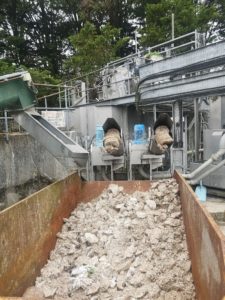Odour Complaints & Smell Pollution Guidance
25-02-2020
Last updated 14-02-2024
It seems that complaints of offensive odours and ‘smell pollution’ are on the rise, which could be a result of the public’s increased understanding of their legal rights or of an increased entitlement to complain.
What Are Odour Complaints & Smell Pollution?
The key legislation that covers odour complaints and smell pollution in the UK is Statutory Nuisance, which is defined in Section 79 of the Environmental Protection Act 1990. This is a very broad piece of legislation that covers all manner of smells, fumes, dusts and other emissions to air that could affect someone’s enjoyment of their property or affect their health. Common odour nuisance complaints can include the following:
- Smells from restaurants and takeaways
- Smoke from barbecues
- Smells from certain industrial processes
- Waste water treatment odours
- Agricultural smells from farming and animal rearing/husbandry
Separate to Statutory Nuisance, there are also laws that affect the emission of odours from industrial facilities under Environmental Permitting legislation. Follow this link to read about industries and businesses most likely to need an odour assessment.
What To Watch For & How Nuisance Smells Are Assessed
The key test to determine whether an offensive odour might reasonably be causing a nuisance is based on the FIDOL principle. This categorises the unreasonableness of the odour, considering its Frequency, Intensity, Duration, the character of the Odour, and the sensitivity of the Location affected by it.  Being a sense that is perceived in the brain, the assessment of smell is quite a subjective thing. As such, the measurement of odours is based on detection by the human nose. The methods of odour measurement rely on quantifying the FIDOL parameters based on human assessors’ observations. This includes measuring the strength of the odour and characterising it via olfactometry. Olfactometry (i.e. the measurement of odour) can comprise a single human assessor carrying out a ‘sniff-test’ at the location of a complaint, or analysis by a calibrated panel of human noses in a laboratory olfactometer.
Being a sense that is perceived in the brain, the assessment of smell is quite a subjective thing. As such, the measurement of odours is based on detection by the human nose. The methods of odour measurement rely on quantifying the FIDOL parameters based on human assessors’ observations. This includes measuring the strength of the odour and characterising it via olfactometry. Olfactometry (i.e. the measurement of odour) can comprise a single human assessor carrying out a ‘sniff-test’ at the location of a complaint, or analysis by a calibrated panel of human noses in a laboratory olfactometer.
What are your Odour Compliant Options?
Resident
For general odour issues you should first contact the environmental health department of your local council. A technical officer will then try to piece together the FIDOL evidence to see if your complaint should lead to action against the source of the smell pollution. This often requires you to keep an odour diary, recording FIDOL details whenever you detect the offensive odour. There is guidance on this from the UK Government here.
Business Owner
If your business generates potentially offensive smells and operates under an Environmental Permit, then you will likely have specific restrictions on your processes to avoid an odour nuisance being caused. However, for other businesses, such as fast food takeaways and restaurants, understanding the FIDOL principles should help you understand the risks of statutory odour nuisance complaints affecting your business. Assessing the risk of this and determining what mitigation measures you might need to employ is the specialist work of an odour consultant.
Odour Consultancy Services
 Phlorum’s air quality consultants have been undertaking odour monitoring, modelling and assessment work for many years. This includes expert witness services at Public Inquiries and the civil courts to determine the reasonableness of odour nuisance complaints. You can follow this link to read more about Phlorum’s air quality services. If you have any concerns about odour nuisance issues from commercial operations, please contact us. We’d be very happy to discuss how we might be able to properly assess them and to resolve any issues.
Phlorum’s air quality consultants have been undertaking odour monitoring, modelling and assessment work for many years. This includes expert witness services at Public Inquiries and the civil courts to determine the reasonableness of odour nuisance complaints. You can follow this link to read more about Phlorum’s air quality services. If you have any concerns about odour nuisance issues from commercial operations, please contact us. We’d be very happy to discuss how we might be able to properly assess them and to resolve any issues.



